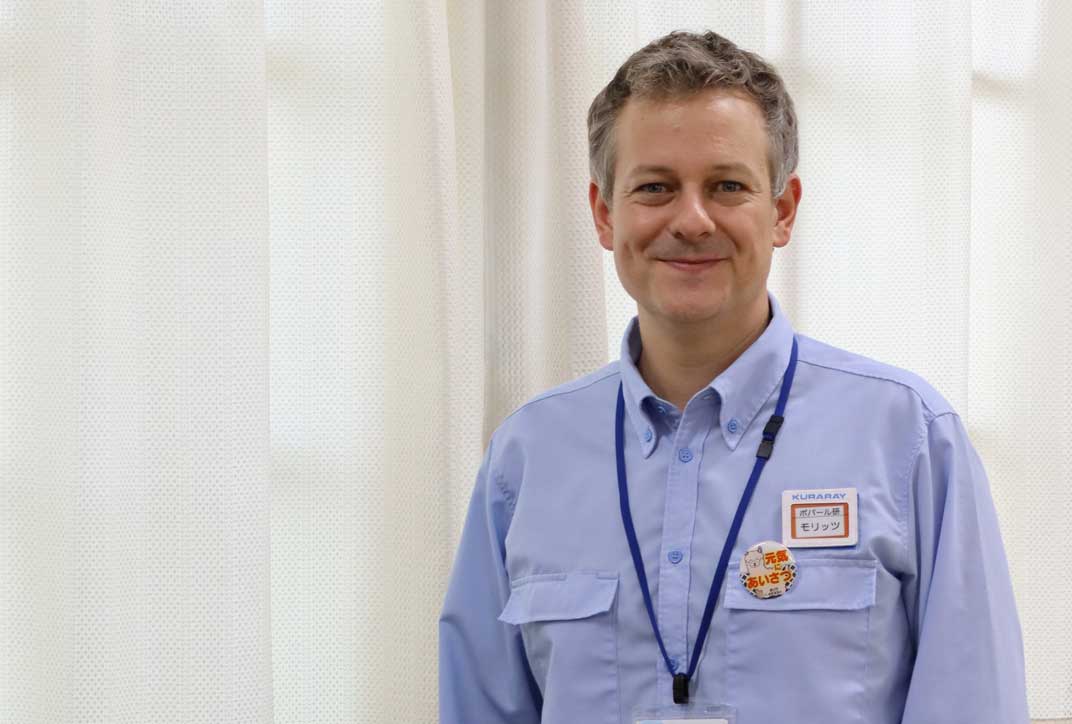 Contact
Contact
Do you have any questions,
need technical support or
would like to place an order?
Order form
Kuraray Europe GmbH Sustainability Blog Actively encouraging relocation
 Contact
Contact
Do you have any questions,
need technical support or
would like to place an order?
In our networked world, foreign experience is becoming more and more important in many companies. That includes Kuraray, which has locations in Europe, Asia and America. The benefits are clear: Mobility enhances the diversity of the people who work for us and they get to know one another better. Different perspectives and new ideas bring a breath of fresh air and employees broaden their personal and professional competencies. That’s good for the expats and the company as a whole.
“We see offering foreign assignments as an important aspect of sustainable, future-oriented human resources policy,” says Susan Kolac-Lang, Global Mobility Expert at Kuraray Europe. “A pool of talent with global experience enables us to meet our need for specialists and managers much more effectively.” Cross-border and cross-divisional talent management also facilitates strategic succession planning and prepares suitable employees to take on more responsibility. “Where possible, we therefore encourage our employees to get experience of different locations and offer a range of models to help them,” says Kolac-Lang.

Opportunities at Kuraray Europe range from business trips to long-term assignments of up to five years in a different country. And there are plenty of options in-between, either with a move to a different place or for employees who remain based in their home country. Hybrid assignments of up to 180 days a year are also possible in connection with global projects. Trainees can gain intercultural skills and establish a global network by spending between one and three months abroad.

Moritz Baier, Head of Technical Service & Development in the Poval Division at Kuraray Europe, seized the offer to move from Frankfurt to Kurashiki in Japan. Since July 2023, he has been working in the Poval Research & Development team in the city where Kuraray was founded about 100 years ago. He had already been to Japan several times and was particularly interested in getting to know the country and the team better. Professionally, there were also good reasons to work more closely with his colleagues for a longer period.
“Naturally, there are cultural differences and language barriers,” says Baier, looking back over his assignment to date. “But you can get over them with good will and practical tools such as translation apps.” His experience has taught him to be more aware about how we communicate and make sure everyone understands what is being said and agreed. Baier is convinced that will help him when he returns to Germany.
Jan Lenz can look back over a much longer time in Japan: he spent a total of five years in Tokyo. A logistics and material management project manager, he took up the opportunity resolutely when he was offered it back in 2018 and has not regretted it. Lenz reports that it helped him grow as a person, and he got to know the wonderful culture and natural landscape of his host country and developed a love of Japanese food. His enthusiasm is tangible. Hardly surprising since he met his Japanese wife during his time in Tokyo! Now they live in Germany. Lenz’ advice to future expats: “Take the chance! Be open to different cultures and ideas because you’ll gain experience that helps your personal and professional development.”
Despite all the enthusiasm for global mobility and the good reasons for it, the truth is that foreign assignments have to be planned very carefully or they can lead to disappointment. Kuraray Europe’s HR department is fully aware of this and therefore provides intensive support. That starts with selecting and preparing suitable candidates. Many things have to be sorted out, including accommodation, insurance and tax issues, support for any family members who relocate with the employee – to list only a few. HR is also available to provide assistance throughout the assignment.
At least as much attention is paid to “reboarding”, in other words, the return from foreign assignments and reintegration into work in the expat’s home country, according to Susan Kolac-Lang, and it’s clear that this is very important to her. “We need smart concepts to make sure an assignment is brought to a successful conclusion.” Only then does all the effort make sense for everyone involved and the assignment can have a sustained impact.